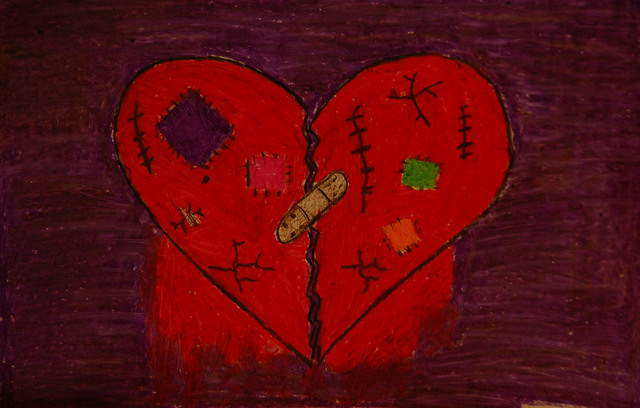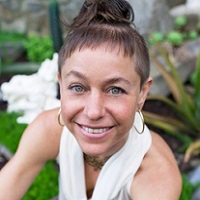“Love hurts,” the chorus of a popular 1970s song, came into my mind unbidden and replayed over and over.
I thought maybe the fillings in my teeth were picking up the frequency of some oldies radio station, but then I remembered I’d removed all my metal fillings years ago.
Fascinated by these ludicrous words doing an endless loop in my head, I decided to check out the lyrics. Was there some message in the song that I was missing by knowing only the chorus? If I were to learn all the words, would they lead me to some valuable insight worth singing about?
I watched a video of the song, and saw a stadium full of people, arms around each other, holding up the flames from their lighters towards the stage. They sang along with the lead singer as one unified group, proclaiming: “Love is like a fire that burns you when it’s hot!”
At first, I found this scene absurd—but then, when I looked through the eyes of someone who wholeheartedly believes healthy relationships have a tremendous part to play in the healing of our troubled world, I felt disturbed. Because, even though this catchy tune has (thankfully) faded into obscurity, the core message of the song has not.
“Love hurts” is a belief that’s been embedded into our collective unconscious, surviving through generations with the help of songs like this. Psychologically speaking, songs are essentially suggestions accompanied by music—because they can go directly into our subconscious, without any filtering by our conscious mind, they easily become the programs that run us.
That said, even if you weren’t around yet to be bombarded by the continuous replay of “Love Hurts” on the radio in the 70s, your parents probably were, and it’s likely that they unknowingly embraced this misguided sentiment and passed it on to you. Reflecting on my own relationship history, I see the time when I was a full-fledged believer.
One day—in a tiny, slightly grungy, bathtub, reveling in the arms of a new lover—I was forced to reconsider. As we lay there entwined and melting into each other, he playfully licked the curve of my jaw and whispered softly into my ear, “I want a commitment.”
I sat up awkwardly and pulled away. The air in the room felt heavy enough to crush me. The warm fuzzy moment came to an immediate close as I burst into tears. “Oh, sh*t,” I thought, making a quick review of my past relationship disappointments. My flabbergasted lover tried to take me back into his arms to console me, but I rigidly resisted.
“Commitment to what?” I finally asked—interested, but scared. He looked me in the eyes and had the courage to laugh. “I want a commitment to growing and exploring—to going through sh*t together and to not bail out just because there’s conflict.”
“Well—that sounds reasonable,” I thought. “Maybe I want this too, but—still scared. Doesn’t love hurt?”
Fifteen years later, here I am with the same man from the bathtub—and a few “Sex and Intimacy” coaching certifications in my pocket—with an answer to my long-ago question:
It’s not love that hurts—it’s me!
As I surrendered to love, I realized that to let my lover in, I’d have to take off the armor I had constructed around my heart. It had served its purpose, but now the defense mechanism was a barrier to authentic connection. As I began to peel off the layers, my heart opened, and I was finally able to embody the most essential ingredient for any fulfilling relationship—vulnerability.
Vulnerability gifts us with feeling—not only the pleasures and joys, but the full spectrum of emotions, including any past hurts we haven’t expressed.
As we take down the walls to let love in, it’s normal for the insecurities, fears and anxieties that have been pent up inside to break out and vie for our attention. It may seem confusing, but the pain we feel is neither the fault of love, nor the fault of our partner—it’s merely triggered by them. The fact is, that all that pain existed long before our partner came into our lives, and—intentionally or not—helped us become aware of it.
So, when love knocks at our door, we have two options. We can run (as I did for some time) when the easy intimacy of the hormone-driven honeymoon phase starts to fade, and the triggers start to surface—or, we can stay and choose to use relationship as a sacred mirror and a vessel for transformation.
To do that—and to co-create a sustainable relationship for the long-term—here are two points to take to heart:
1. There is no perfect relationship.
Believing in “happily ever after” will keep us in a state of continual disappointment. Conflict will happen—it happens to everyone. Relationships have their ebbs and flows, peaks and valleys, barren falls and wet juicy springs. Save yourself the heartache and accept it. Denying this truth will keep you running after a fantasy.
2. There is no perfect person.
Stop looking. I’m not perfect and neither is my partner. We all have wounds that cause us to react in ways that sometimes surprise us. The good news is that you will undoubtedly attract the perfect partner to help you heal these wounds. (Side note: The perfect partner will often present as the person who knows exactly—usually inadvertently—how to push your buttons, triggering any unhealed wounds, possibly even on a daily basis, until you get a handle on this. If it makes you feel any better, this is usually a two-way street.)**
.
Relationships are one of our greatest opportunities for growth and healing. (And they’re way cheaper than therapy!) Self-reflection and accountability do take courage—this isn’t always an easy path, but it’s worth it for a challenge that rewards us with the fulfillment that only true emotional intimacy can bring.
To be able to reap the pleasures of a long-lasting, healthy relationship—we have to take responsibility for our feelings and stop making love the scapegoat for our pain.
Insecurity, jealousy and fear of abandonment can hurt—but love doesn’t hurt.
Love is a state of relaxation that nourishes us on the deepest of cellular levels, supporting us on our evolution into whole human beings.
.
** Author’s note: To be clear—I’m not advocating staying in any relationship that’s abusive. Take a good, honest look to discern the difference between button-pushing and abusive behavior.
.
.
Relephant:
If Your Love Hurts You, Let Go.
.
Author: Pyasa Neko Siff
Editor: Yoli Ramazzina
Photo: Flickr/George Miller
 Share on bsky
Share on bsky


Read 25 comments and reply